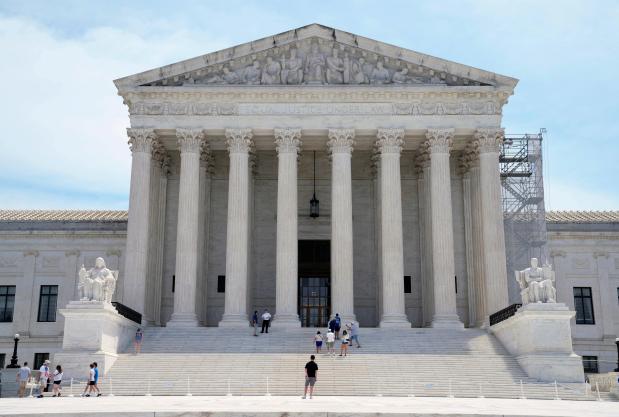Former Portage Mayor James Snyder’s federal court case isn’t over yet, as his attorneys and federal prosecutors make a bid to have his bribery case, which was overturned by the U.S. Supreme Court, either dismissed forever or tried another time.
Both sides made their case in filings Monday before the U.S. Court of Appeals for the 7th Circuit in Chicago, asking for the case to be remanded to U.S. District Court in Hammond.
After multiple twists, turns and delays since Snyder was indicted on Nov. 17, 2016, in district court on two bribery counts and one for obstructing the IRS, a jury found Snyder not guilty on a bribery count involving a towing contract and guilty on the other two counts.
The second bribery conviction, over allegations surrounding a $13,000 payment involving around $1 million in contracts for garbage trucks, stood after two trials, only to get overturned when a majority of the Supreme Court determined that the payment was a gratuity, not a bribe, and criminalizing the payment put even routine campaign contributions at the risk of the federal government’s wrath.
Overturning Snyder’s conviction had a ripple effect on countless other cases, most notably prominent cases in Illinois, including the trial of ex-House Speaker Michael Madigan and the case of the “ComEd Four” who were convicted of a scheme to bribe him.
The Supreme Court decision, released on June 26, determined, among other matters, that the payment to Snyder from the Buha brothers, owners of Great Lakes Peterbilt, was a gratuity because Snyder received the money, reportedly for consulting work, after the business got the garbage truck contracts and not before.
Now, Snyder wants the bribery conviction returned to the district court and dismissed with prejudice, so it can’t be filed again. The U.S. Attorney disagrees, noting the evidence that he accepted a bribe and a gratuity so the case should be retried.
The 6-3 majority on the Supreme Court that overturned Snyder’s conviction, according to the filing by Snyder’s Chicago attorney Andréa Gambino, “make it clear that the district court erred when it refused to dismiss the gratuity count from the indictment, when it declined to give Snyder’s proposed jury instructions, and when it denied the judgment of acquittal at the conclusion of both trials.”
Additionally, Gambino notes that “this Court and the district court erred in finding that there was sufficient legal or factual evidence to uphold a conviction,” and then goes on to cite the Supreme Court ruling that points out that Snyder “has never been charged by state prosecutors for bribery; And he has never been charged or disciplined by Portage for violating the City’s gift rules.”
Federal prosecutors, in their filing, ask the district court to vacate the judgment on the bribery charge and remand the case for a new trial, as well as for further sentencing proceedings at the conclusion of the retrial.
The evidence against Snyder at trial led to his conviction, prosecutors said, and the Supreme Court’s ruling didn’t change that.
“As this Court previously found, the evidence the government presented at trial was sufficient to convict the defendant of accepting both a bribe and a gratuity… and that holding was undisturbed by the Supreme Court’s decision.
“Accordingly, there is no basis to acquit the defendant; at most, the instructional error here entitles Snyder to a new trial.”
Prosecutors also note that the Supreme Court did not grant a review of Snyder’s conviction for obstructing the IRS or mention the conviction, which “remains undisturbed.”
Snyder, a Republican, was first elected mayor in 2011 and reelected in 2015, a term cut short by his federal conviction in February 2019.
Snyder received a sentence of 21 months in prison for the bribery and IRS convictions and a year on supervised release from U.S. District Court Judge Matthew Kennelly.
Snyder successfully argued that the start of his sentence should be postponed until his bid to have the Supreme Court hear his case was complete.
Regardless of the outcome of Snyder’s request before the appellate court, his sentence will remain in flux until the case reaches its conclusion.
alavalley@chicagotribune.com




